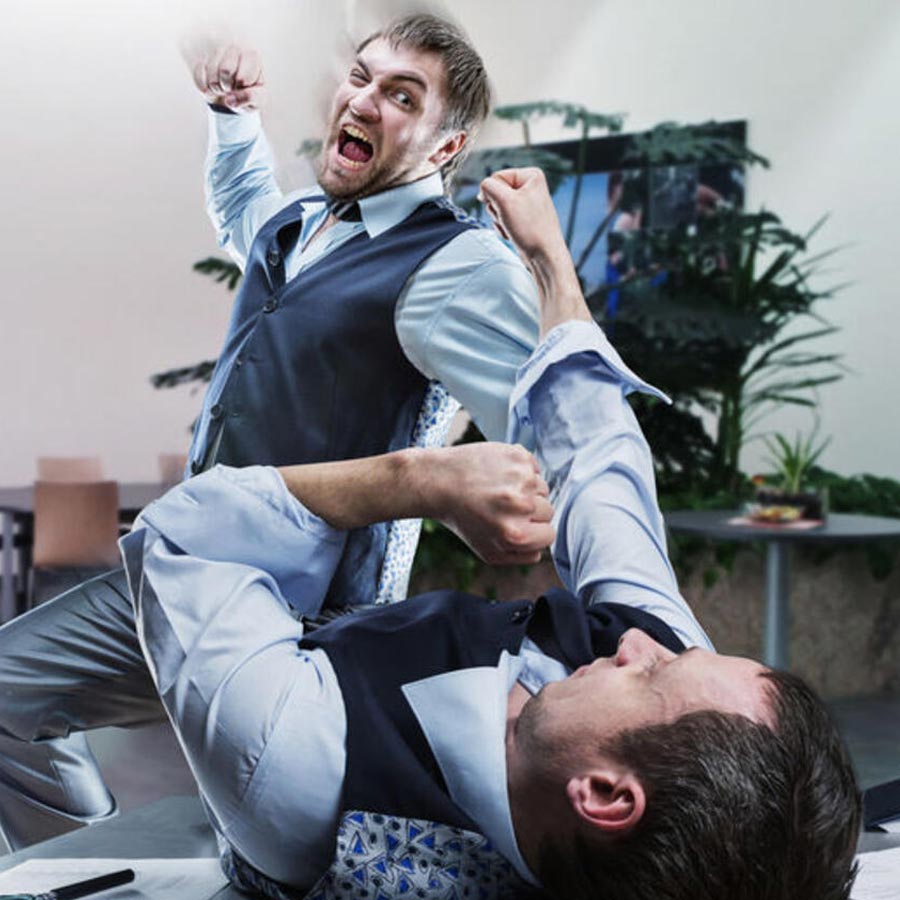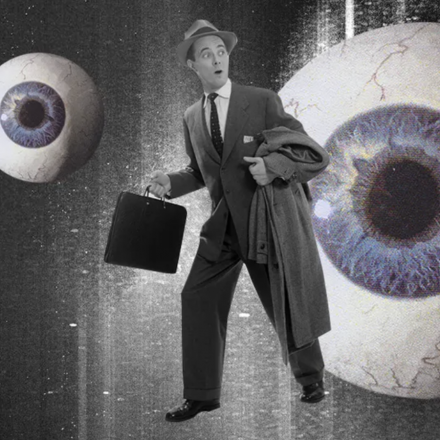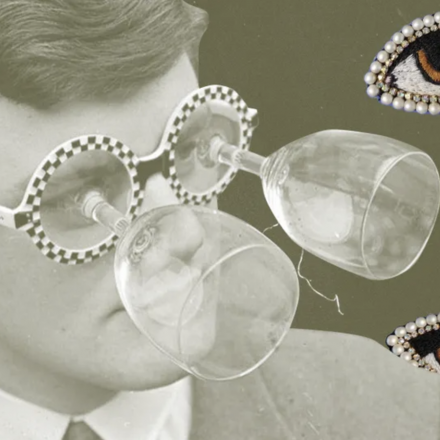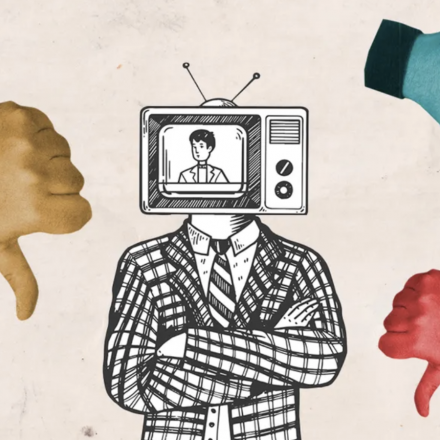Getting into a fight and being beaten up is worse than being dumped by a woman or fired. Even pacifists can unfortunately become victims of violence.
The first time I was beaten was when I was sixteen. Before that Saturday night, I had been in a few scrapes at the sports field and the park, but this was something more serious. That evening, I encountered real violence for the first time.
I was hit hard; the defeat was absolute: I was lying on my back, taking punches to the face until someone forcefully pulled the attacker off me. The beating was swift, terrifying, and vicious—just like my attacker—and came out of nowhere.
The drama involved a girl who was flattered by all this; I said something wrong, alcohol-fueled wounded pride took over, and it escalated. What more do young people need to start throwing punches?
It wasn’t quite a full-blown fight. That’s usually how it is: often, one person quickly gains the upper hand. Beating someone up is difficult: adrenaline wears you out faster than physical exertion; our delicate hands have to hit solid bones and sharp teeth; rising blood pressure makes fists miss the target. Even if you emerge victorious—being dragged off someone you’ve battered—there’s still a chance that victory will be pyrrhic with adverse consequences.
Beating someone is hard, but being the victim is even harder. Unless you’ve been in the defeated’s shoes, you can’t appreciate the full nastiness of physical violence. That evening, I was lucky to come away with just a black eye and scratches, and my shirt lost a few buttons. All my teeth remained, but my pride was crushed. Losing my first fight felt far worse than being rejected or getting fired. My self-esteem dropped through the floor.
When I got home, my mom started crying, and my battle-scarred father—an old war hero who had long passed the exam of violence—just looked me in the eye. Before returning to the TV, he delivered an ironclad truth every young man must know. “There’s always someone tougher than you,” my father said.
One would think that every man eventually leaves such experiences behind. A drunken brawl over a girl seems as enticing as high school acne. But violence rarely stays in the past—it’s close, within arm’s reach. It’s naive to believe it’s left in the rearview mirror along with poverty, drugs, and reckless youth. It’s always there—like the weather, the school around the corner, the neighborhood park, nightclubs, and local pubs.
As you age, you stop chasing every skirt and start loving one woman. You take your career seriously. You stay home in the evenings. Then comes the most important thing—you become a father. A father to someone you would kill to protect. Fighting to defend your child is as natural as breathing.
Recently, while driving my fourteen-year-old daughter, a local police officer nearly crashed into us in a brand-new black Mercedes. I lost my temper; if the guy in the Mercedes had said anything more, he would have regretted it. When the incident was over, my daughter looked at me as if seeing me for the first time. It was a grim moment for both of us, reminding me that violence can come out of nowhere. You don’t need to seek it; it will find you. And fearing it isn’t enough to avoid it.
There’s a well-worn cliché: real fights aren’t like what you see in movies. They’re not like training sparring matches either. Any form of controlled violence differs from a real fight, as spontaneous brawls don’t come with predetermined conditions. In sparring, no one will gouge your eyes or kick you in the groin, and no one finishes off the defeated. In real fights, all this happens. In karate classes, you won’t face five enraged thugs, but they might show up in a bar across the street. Violence has no honor. One person quickly beats another; everything that follows is just damage control.
Training in martial arts has many benefits—you’ll be in great shape and less afraid of taking a hit—but it won’t prepare you for a real fight. In sparring, you fight with people you know and likely like. But if someone is trying to smash your skull in a bar, chances are you’re seeing them for the first time and they hate you fiercely.
You can train in martial arts for years, but that doesn’t mean you’ll become a fighter. I practiced kung fu, but didn’t become Bruce Lee. My teacher was a real fighter—truly formidable. I once watched him walk down the street towards a gang of thugs. He walked with no fear, showing no aggression. Absolute calm. I saw the gang part before him—instinctively, without even realizing it. That’s what a real fighter looks like. No matter how much you sweat in training, most of us will never reach that level of calm.
There are two types of men drawn to martial arts: those looking to straighten out their lives and tame their inner demons, and those who have been victims of violence.
My teacher belonged to the second group: he started martial arts because he was severely bullied in school. A quiet, modest guy who, if he wanted to, could have easily thrown me across the room with one punch. After I once got into a fight with some idiot who insulted my girlfriend, I asked my teacher, “What did I do wrong?” “You should have walked away,” he replied. But what if you lack the courage to walk away?
Truly tough men always say that violence isn’t worth the price you pay for it. The consequences of violent acts are unpredictable, and that’s the best reason to avoid them. A fight can cost you a tooth, a job, or your life, landing you in the hospital or jail. A fight can ruin your life or drastically change it. You’ll probably have no idea what your opponent is capable of, and your fight will have no real meaning.
Getting into a fight risks killing your opponent or putting them in a coma; the same could happen to you. Even if you win and leave the battlefield unscathed, nothing good will come of it. And a fight at work might mean the end of your promising career before it even starts.
On my first journalism job, I ended up in a fight right in the office—six years after that memorable Saturday night. This time, I was on the other side of the power equation. In some ways, it was even worse: the editor could fire me easily, and my opponent could call the police. And all for what? A girl who wasn’t worth fighting over. That’s the futility of violence: you’re playing Russian roulette with your health, career, and freedom, risking everything for trivialities.
A violent act lasts mere seconds, but its chaotic consequences—for your soul, body, and career—can haunt you for years. Violence is always ugly, cruel, and irrational. Yet it continues to fascinate us. Teenagers dream of looking cooler than they are, and every man deep down knows he can’t build armor against all the world’s imperfections.
Even a modern man is unlikely to evolve to the point where the concept of toughness no longer matters. The power of violence is evident: we know that fear of it protects everything we hold dear and that one act of evil can strip us of it. Yes, violence poisons the soul of both the perpetrator and the victim. Yet men cannot outgrow it, as it has long occupied the very core of our being. Anyone who thinks having a mortgage and a skin moisturizer means it doesn’t concern them is fooling themselves. Learning to deal with violence means becoming a man.
Experts in this unpleasant area—two people who taught me to fight, and my father who explained what it means to be a man—have always advocated for the pacifist instinct. Be like Jesus: turn the other cheek. Ignore insults. Walk away. Good advice, but it doesn’t always work. There will inevitably come a moment when you can’t walk away. The banality of the moment that brings the realization of inevitable violence will strike you. You’ll hit someone in a bar, and they won’t accept your apologies. You’ll wake up at night to find a burglar in your bedroom. Someone will insult a loved one. You won’t be able to walk away and will resort to fighting.
If a confrontation is inevitable—and all your pacifist options are exhausted—then hit first and hit hard. And for heaven’s sake, aim for the jaw, ribs, or nose. All three targets are excellent—few will miss a broken nose. When you strike, put everything into it: hit with your whole body, not just your fist. After those nauseating moments, run away as fast as you can. Save your life.


















